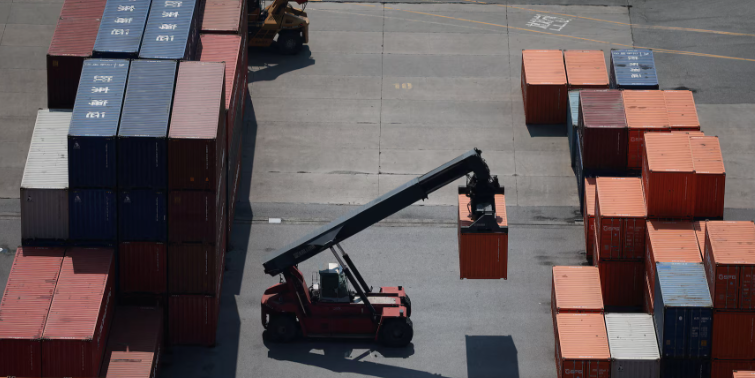TRADE & ECONOMY

A new Reuters poll reveals that the global economy is facing an elevated risk of recession this year, with tariffs imposed by U.S. President Donald Trump being a significant factor behind the growing uncertainty. A majority of economists surveyed in April 2025 expressed concern that the ongoing trade war and global disruptions caused by U.S. tariffs could send the world economy into a downturn.
Just three months ago, economists had projected steady growth, but the situation has rapidly deteriorated. Trump's controversial trade policies, which include a 10% blanket tariff on all U.S. imports and a 145% tariff on Chinese goods, have sent shockwaves through financial markets, causing a massive loss of stock market value and eroding investor confidence.
Tariffs Weighing Heavily on Global Sentiment
The tariffs, intended to reshape global trade, have had a far-reaching impact on business sentiment. In the latest survey, over 92% of economists agreed that the tariffs have had a negative impact on business sentiment. Only a small fraction, mainly from emerging economies like India, viewed the tariffs as neutral. None of the economists surveyed suggested that the tariffs had a positive effect.
As a result of the tariffs, many businesses have cut their revenue forecasts or withdrawn them entirely, while others are struggling with heightened uncertainty about the future. James Rossiter, Head of Global Macro Strategy at TD Securities, noted the difficulty businesses face in planning ahead due to the unpredictability surrounding tariffs.
Global Growth Forecasts Downgraded
The economic outlook has taken a sharp turn, with three-quarters of economists revising their 2025 global growth forecast downward. The median forecast for global growth is now 2.7%, a significant drop from the 3.0% growth projected in January. The International Monetary Fund (IMF) provided a slightly higher estimate of 2.8%, but the downward trend is evident across most economies.
Growth forecasts for some of the world’s largest economies, including Mexico and Canada, have been downgraded sharply. The revisions for these countries were among the most significant seen in the poll, with forecasts now set at just 0.2% for Mexico and 1.2% for Canada. Despite these downgrades, countries like China and Russia are expected to outperform the U.S. in 2025, with growth projections of 4.5% and 1.7%, respectively.
Recession Risk and Stagflation Concerns
The risk of a global recession is now seen as high or very high by 60% of the economists surveyed, while only 40% view the likelihood as low. This heightened risk is compounded by concerns about inflation and economic stagnation. Many central banks, which have worked to tame the highest global inflation in decades, are now facing challenges as tariffs push prices up.
As Timothy Graf, Head of Macro Strategy for Europe, the Middle East, and Africa at State Street, stated, even if tariffs were lifted today, they would have caused substantial damage to global trade and trust in the U.S. as a reliable trade partner. The risk of stagflation—an economic condition characterized by low growth, high inflation, and rising unemployment—is now considered higher than before, and this scenario could pose a serious threat to economic stability worldwide.
Central Banks Struggling to Meet Inflation Targets
Over 65% of major central banks surveyed in the poll indicated they would likely miss their inflation targets for the year, with some projecting a similar outcome for 2026. The combination of tariffs and rising prices is expected to put continued pressure on real incomes and demand, with economists warning of further negative impacts on the global economy.
Conclusion
The latest Reuters poll paints a grim picture for the global economy, with heightened recession risks and concerns over stagnation. The trade policies initiated by the U.S., particularly the tariffs, are having a profound effect on business sentiment and growth forecasts. As the world grapples with the ongoing economic uncertainty, the potential for a global recession appears more likely than ever before.




